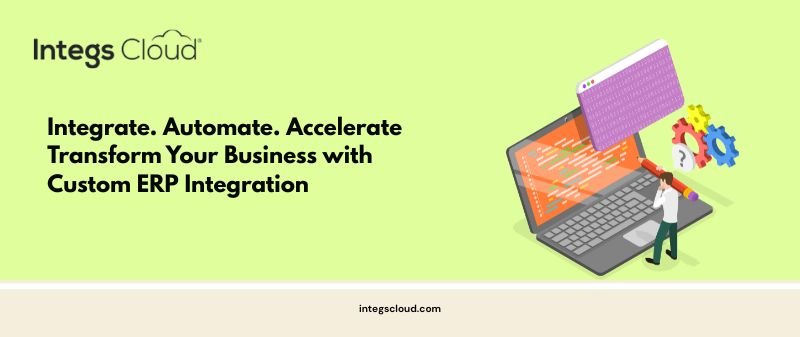Why Automate Finance Processes on NetSuite?
Finance teams today operate under constant pressure: deliver timely insights, maintain compliance, and support business growth with fewer resources. Manual processes such as invoice approvals, reconciliations, and reporting often slow down operations, increase the risk of error, and limit the ability to provide strategic input.
Automation has become essential. By reducing manual workloads, organizations can strengthen financial controls, accelerate reporting, and free finance professionals to focus on strategic decisions. Oracle NetSuite, as a leading cloud ERP platform, provides a comprehensive suite of automation tools that streamline finance processes end-to-end. The result is higher efficiency, stronger governance, and real-time financial visibility to support growth.
Key Finance Processes That Can Be Automated on NetSuite
1. Accounts Payable (AP) and Accounts Receivable (AR)
Invoice and payment cycles are some of the most resource-intensive processes in finance. NetSuite simplifies AP and AR through:
-
Automated invoice capture and routing with validation against purchase orders.
-
Configurable approval workflows to enforce policy and reduce delays.
-
Payment scheduling and collections reminders that improve cash flow predictability.
Automating AP and AR reduces manual data entry, accelerates payment cycles, and ensures accuracy in financial records.
2. Expense Management
Manual expense reporting creates bottlenecks and increases exposure to fraud or non-compliance. NetSuite addresses this by:
-
Allowing employees to submit expenses digitally through self-service portals.
-
Applying automated rules for approvals, compliance checks, and policy enforcement.
-
Creating auditable records that streamline reimbursement and reduce disputes.
This automation ensures faster turnaround, better adherence to policy, and reduced administrative overhead.
3. Financial Reporting, Compliance, and Consolidations
Accurate, timely reporting is critical for leadership and external stakeholders. NetSuite enables automation in:
-
Financial statement preparation with real-time P&L, balance sheet, and cash flow reports.
-
Tax and audit compliance, automating calculations, filings, and audit-ready trails.
-
Multi-entity consolidation across subsidiaries, currencies, and geographies.
These capabilities reduce reliance on spreadsheets and improve confidence in reported results.
4. Billing and Revenue Recognition
Businesses with recurring or complex billing models require automation to stay compliant and efficient. Oracle NetSuite ERP supports:
-
Automated invoice generation for recurring, subscription, or milestone-based billing.
-
Revenue recognition automation aligned with ASC 606 and IFRS 15.
-
Integration with CRM and sales to ensure accuracy across the order-to-cash cycle.
Automating billing and revenue recognition not only reduces compliance risks but also supports business model innovation.
Benefits of Finance Automation in NetSuite
Organizations that automate finance workflows in NetSuite realize significant improvements:
-
Shorter close cycles: Automation eliminates manual reconciliations and accelerates journal entries, helping finance teams reduce close times by as much as 80%.
-
Improved compliance: Built-in accounting rules, approval workflows, and audit-ready trails ensure adherence to regulations while reducing the risk of human error.
-
Enhanced cash flow visibility: Real-time dashboards and proactive alerts give leaders immediate insight into receivables, payables, and working capital.
-
Scalability for growth: Teams can support higher transaction volumes and more complex operations without needing proportional increases in headcount.
-
Greater transparency and control: With centralized, consolidated financial data, decision-makers gain the clarity needed to forecast accurately and act with confidence.
Next Steps for Finance Leaders
Success with finance automation comes from identifying where it delivers the most value, setting measurable goals, and ensuring teams are aligned with the new way of working. The steps below provide a practical roadmap for finance leaders to achieve faster closes, stronger compliance, and scalable growth.
Step 1: Audit Workflows
Map current finance processes to uncover manual bottlenecks.
Step 2: Set Clear Objectives
Define goals—faster invoicing, stronger compliance, or better forecasting.
Step 3: Use NetSuite Tools
Leverage SuiteFlow for workflows, SuiteBilling for recurring revenue, and real-time dashboards for reporting.
Step 4: Focus on Adoption
Provide training and support so teams embrace new processes.
Step 5: Track KPIs
Monitor metrics such as close cycle time, Days Sales Outstanding (DSO), and error rates.
Step 6: Integrate Across Departments
Connect finance with sales, operations, and inventory for unified, end-to-end processes.
Step 7: Plan for Scalability
Build automation with growth in mind to maintain efficiency as transaction volumes increase.
Why These Automations Matter
When finance teams automate AP/AR, expense management, reporting, and revenue recognition on Oracle NetSuite, they not only cut down on errors but also speed up critical workflows. Leadership gains real-time visibility into cash flow, compliance, and performance through dashboards that update instantly. Complex revenue models are easier to manage, with built-in compliance for ASC 606 and IFRS 15 ensuring accuracy and transparency.
Automation strengthens collaboration across finance, sales, operations, and inventory by ensuring processes are fully integrated and streamlined. Audit cycles become shorter and less resource-heavy, while approval hierarchies reduce the risk of fraud or policy violations. Most importantly, NetSuite automation is built to scale, allowing finance functions to remain efficient even as transaction volumes grow.
Conclusion
Finance automation in NetSuite is a practical step toward building a more agile, efficient, and strategic finance function. By automating processes like AP/AR, expense management, reporting, and revenue recognition, organizations reduce risk, shorten close cycles, and equip decision-makers with accurate, real-time data. For companies seeking to remain competitive and scale responsibly, automation serves as a foundation for sustainable growth and stronger financial control.
About Integs Cloud
Integs Cloud helps businesses make the most of NetSuite through tailored ERP implementation, automation, and managed services. Our expertise ensures that finance processes are streamlined, reporting is simplified, and compliance is maintained, allowing leadership to focus on growth. Whether optimizing existing NetSuite setups or delivering end-to-end ERP solutions, Integs Cloud partners with organizations to build scalable, efficient systems that deliver measurable business outcomes.
Contact Integs Cloud to get Expert Guidance to navigate your ERP journey.



